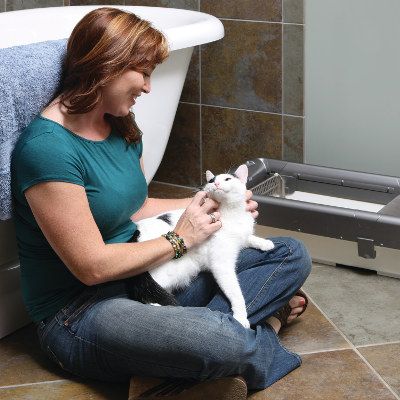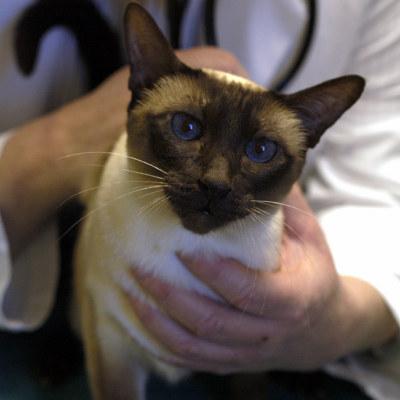Rarely a day goes by that cancer isn’t in the news. In the month of August alone, the Food and Drug Administration approved the first screening test for colon cancer, researchers announced that a substance in sharks’ immune systems may hold the key to curing cancer, and scientists identified a new gene that may be linked to breast cancer. In people, our understanding of cancer prevention is improving all the time, but in animals, we still lack a lot of the basic data that allows us to identify risk factors.
Here are a few risk factors we know about so far.
-
 Genetics. Some breeds are predisposed to certain cancers.
Genetics. Some breeds are predisposed to certain cancers. - Being overweight
- Exposure to lawn chemicals and older flea products
- Living in a smoker’s household
- Long-term exposure to the sun
Until we learn more about why dogs develop cancer, here’s how you can help prevent the disease in your pet or at least diagnose it early, when treatment is most effective.
-
 Visit the veterinarian for routine checkups and vaccinations. If you know your pet's breed, ask your vet which diseases to watch out for.
Visit the veterinarian for routine checkups and vaccinations. If you know your pet's breed, ask your vet which diseases to watch out for. - Groom your pet at home weekly. Familiarize yourself with your dog’s body so you notice when something seems out of the ordinary.
- Perform a more extensive monthly check that includes running your hands along every part of your pet to look for new or changed lumps and bumps.
- Examine your pet's mouth regularly, including lips and tongue, to look for tartar, broken teeth, infections or masses. Incorporate this as part of your regular brushing routine.
- Feed your pet high-quality food supplemented with cruciferous vegetables such as broccoli and cauliflower. Research indicates these veggies may help prevent cancer.
- Keep your pet's weight in check. Obesity is a major factor in poor health. Keep the extra food and treats to a minimum and make sure your dog gets at least 20 minutes of exercise in the morning and in the evening.
- Keep your pet away from pesticides and areas that have been sprayed with pesticides.
- Never use expired flea and tick medications. Purchase your pet’s medications from a reputable source and use them according to the recommendations.
- Prevent sun overexposure. Light-colored dogs in particular are at risk for skin cancer. If your dog spends a lot of time outside, make sure he has shelter from the elements. A kennel shade is a great addition to his dog house.
- Stop smoking. We know smoking causes cancer in people, and secondhand smoke is even worse. Our pets suffer from the effects of smoking, too. Keep your pets away from smoky areas including outdoor patios and inside of cars.
Identifying more risk factors linked to dogs’ nutrition, genetics and environments is the reason behind Morris Animal Foundation’s $25 million Golden Retriever Lifetime Study. This is the largest and longest effort ever undertaken to improve the health of dogs. Over the next 10 to 14 years, observational data collected from 3,000 Golden Retrievers will give us a better understanding of cancer and help us learn how to prevent it and other diseases that take the lives of dogs too soon.
We all want our pets to enjoy long and healthy lives. This is why Morris Animal Foundation will continue to work toward a better understanding of cancer and the other diseases that affect our furry companions. We’ll help you stay informed about how you can protect your pet from cancer.


